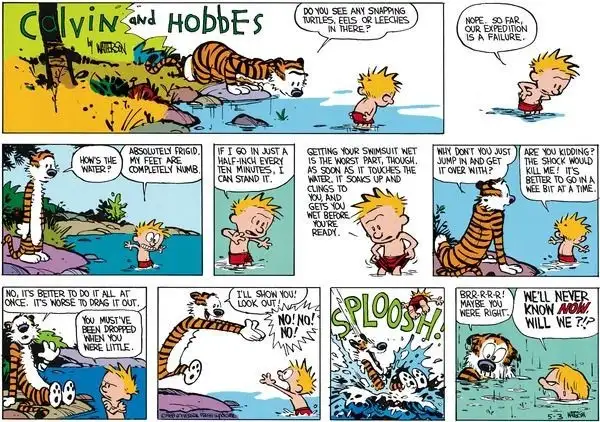My grandfather died earlier this month. He was 92 years old. Despite his advanced age, he managed to avoid the fate of many of his cohort; up until the hour of his death, he remembered my face and name, and those of his other grandchildren and great-grandchildren and so on. He was tested regularly by a nurse asking him where he was, what his name was, what year it was. He never forgot those things. His sister, my great aunt, was not so lucky. She's been in a nursing home for four years, but she doesn't know that. She also doesn't know what day it is. She doesn't know that her brother is gone, or even that her mother is gone. It's possible that at this moment she doesn't even know she ever had any brothers.
For my part, I'm not sure which fate is worse. People talk fearfully about dementia, not wanting to lose their memory, but sometimes it seems to me to be a mercy. To be aware of one's own impending doom must be like a curse. Is it better then, to have the self slowly erased by dementia? After a memory is lost, it does not matter any longer. It was once precious, by virtue of being a memory, but is no longer. Of course, the same can be said of death - it is torture only for the living. The question then must be one of settling into cold water. To inch slowly into death, taking each loss as a tiny shock before becoming accustomed, or to cannonball straight in, and get it all over with in a painful but short instant.

At my grandfather's funeral, I found myself afraid that I would someday soon no longer remember his face. This seems to be perhaps a rather absurd fear, after all, once lost, a memory loses its value. Bu the pain in forgetting, as in death, comes before the fact. The fear of death is a fear of not-living, and the pain of forgetting is the fear of not-remembering. The moment of forgetting passes by in an instant, unnoticed by necessity. What I fear is that I will one day remember his laughter for the last time ever, just as I will one day hug my mother for the last time, eat pasta for the last time, or go to sleep for the last time, and in any of these I will not know it is the last time, and will not sufficiently savor the feeling, until it is too late. Forgetting is a little death, which diminishes the possibilities of life. One less memory, one less avenue to perfect living.
I think it is likely that within a few years, I will no longer be able to recall my grandfather's face on demand. But what I realized later is that this was never the point of memory at all. Facial memory was not meant to be recalled on demand, but to be recognized, so that you know who you see when you see them. I imagine this will last much longer. How long will a recognize my grandfather in a picture of him? Perhaps the rest of my life. It seems odd then to say that anything is ever forgotten, if it can be brought back to the mind by the right cue.
Some months ago I took a memory test which challenged the test taker to remember whether they had seen a word before during the test. The curious thing about it is that well into the test, when I was still going strong, I realized I couldn't come close to giving a full list of the words I had seen. This despite the fact that when given one of those words I could tell you whether it should be on that list or not. It felt like each word slotted into an indentation left on my mind by the first time I had seen it. Here must be the crux of memory; endless grooves in the mind, down which life flows, forming rivulets of meaning shaped by the erosive power of what came before. And the river flows on, until the channels widen, and the flow blends together, and then the stream slows to a trickle, and the sand from the banks blows into the beds of the old stream, and the bed goes dry and flat as the water finds a new way to the sea.